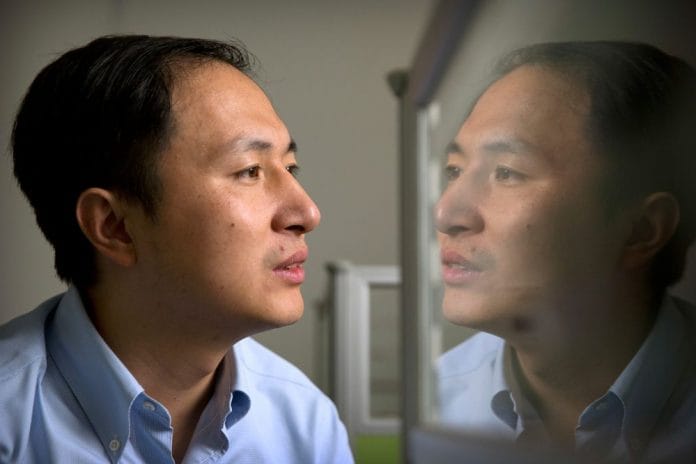Bengaluru: Chinese researcher He Jiankui was sentenced to three years in prison and fined 3 million yuan (around Rs 3.06 crore) for illegally performing gene editing on human embryos.
He was involved in the birth of two twin girls, Lulu and Nana, in late 2018, and a that of a third gene-edited baby.
Two other researchers working with him were convicted too. Zhang Renli was sentenced to two years’ jail and fined 1 million yuan, while Qin Jinzhou was handed a 18-month term and slapped a fine of 500,000 yuan.
Lulu and Nana are the world’s first germline genetically edited babies. He performed in-vitro fertilisation of sperm and eggs of the twins’ parents (and other couples), and edited the genome of the embryos using the CRISPR/Cas9 tool.
Gene CCR5 was targeted to reduce the chances of a specific form of HIV, as it helps create a protein that HIV uses. The twins’ father was HIV positive.
Illegal in several countries
Germline gene-editing — or editing genes in such a manner that the changes pass on to progeny — is considered widely unethical and illegal in several countries. Researcher He also allegedly performed these experiments secretively without the knowledge of his institution, Southern University of Science and Technology (SUSTech).
He’s announcement of the birth of the twins was met with instant criticism and backlash across the globe and in China.
Multiple investigations were started, by SUSTech, the Shenzhen City Medical Ethics Expert Board, and the Chinese government. He’s doctoral advisor, Michael Deem, came under investigation by Rice University when his involvement was exposed. It was even suspected that the Chinese government helped fund the experiments.
However, recent findings show it is likely that the twins did not have an immunity to HIV at all.
Other studies already speculated that the babies’ brains might have been altered by the alteration of the protein as the CCR5 gene is responsible for memory and recovery from stroke.
Scientists also claim the babies might have unintended and as yet unknown genetic consequences of editing.
In July of last year, it was reported that a third baby might have been possibly born under He’s treatment.
He was placed under house arrest at some point in the last year and all of his work suspended by the Chinese authorities.
China has performed other bolder experiments with gene editing, including creating monkeys with human brain genes, fully cloning monkeys, and creating pigs with monkey DNA.
Also read: For the first time, India has a genome database. But are we ready to use it?






